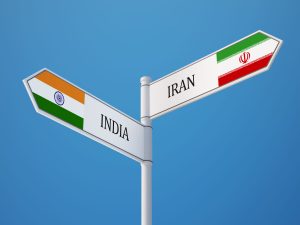India-Iran bilateral relations have been facing several challenges ever since the United States imposed sanctions on Iran after pulling out from the Joint Comprehensive Plan of Action (JCPOA) in 2018. The bilateral energy relations between India and Iran have not yet been restored, despite Indian refiners’ keenness to import oil from Iran. The U.S. sanctions on Iran remain the primary impediment to resuming energy cooperation between both countries.
In a recent attempt to further crack down on entities that enable Iran to trade oil, the United States imposed sanctions on several trading companies. Among those targeted by the U.S. Department of the Treasury was Tibalaji Petrochem Pvt. Ltd., a Mumbai-based petrochemical trading firm. This was the first direct U.S. response penalty toward an Indian firm for engaging in commercial activities with Iran concerning the oil trade.
Per official statements from the U.S. Department of the Treasury, Tibalaji “has purchased millions of dollars’ worth” of Iranian petrochemical and petroleum products from sanctioned Iranian petrochemical broker Triliance, “which were ultimately shipped to India.” As per reports Tibalaji had on several occasions purchased methanol and base oil along with other petrochemical products from Triliance, which brokers the sale of Iranian petrochemical products to international purchasers.
Against the backdrop of the Russia-Ukraine war, India decided to continue its energy ties with Moscow despite the U.S. warnings as New Delhi. In doing so, India wanted to avoid repeating the mistake of abiding by the U.S. sanctions on Iran while China continued to benefit economically by increasing its oil imports from Iran. Earlier, Iran significantly featured in India’s energy basket, as Iranian oil made up nearly 11 percent of India’s overall oil intake. The Indian government, under pressure from the Trump administration, stopped oil imports from Iran in 2019 after the U.S. decision to walk out of the nuclear deal.
As the Vienna talks could not deliver any breakthroughs yet, the prospects for a resumed nuclear deal remain uncertain, especially amid several disagreements between Washington and Tehran regarding both the nature and extent of sanctions relief as well as binding guarantees of the longevity of the deal.
As per recent trade reports the U.S., Iraq, Saudi Arabia, and the UAE together make up roughly 63 percent of the total value of Indian crude oil imports. New Delhi now is considering diversifying its oil imports by purchasing fuel from Canada, Gabon, Brazil, Columbia, and Guyana amid the energy market fluctuations since the Russia-Ukraine war. India has expanded its cooperation with Gulf powers in recent years and the strategic partnerships with GCC countries become a critical factor for India to change the status quo engagement with Iran, especially amid lingering regional tensions in the Middle East. The realignment of regional geopolitics post-Abraham Accords further has prompted New Delhi to explore prospects for cooperation with the U.S., Israel, and UAE through minilateral forums like the I2U2 that are rooted in geoeconomic factors.
Amid a severe economic crisis in Iran, the Ebrahim Raisi government has focused more on deepening ties with their regional allies and expanding cooperation in Central Asia. Moreover, Iran’s strategic partnerships with China and Russia have given Tehran further impetus to challenge Washington in the region, and Moscow’s and Beijing’s support remains crucial for both the Iranian economy as well as Iran’s regional power posture. Hence, although New Delhi has followed a balancing act in the Middle East, the evolving geopolitical realignments could pose newer challenges for India to deepen its cooperation with Iran amid escalating tension between Iran and the West and stronger U.S. measures to target entities trading with Iran.
Despite the limitations and challenges, in the current context, New Delhi and Tehran have converging interests in trade and connectivity. Iran’s full membership in the Shanghai Cooperation Organization, where India is also a member, could accentuate mutual efforts to focus on connectivity projects like the Chabahar port, which links with the International North-South Transport Corridor (INSTC).
India and Iran have also been trying to diversify their channels of payment to increase bilateral trade. As per recent reports, the bilateral trade between India and Iran has increased; Iran’s exports to India stood at $361 million during January-July 2022 while it was $267 million during the same period in 2021. India’s exports also saw a 54 percent rise during the first seven months in 2022.
Since the Iranian economy is highly dependent on its oil revenue, the protracted effects of the sanctions will continue to limit Tehran’s economic prospects, especially as recently Iran’s major energy customers like the Chinese teapot refiners also turned to Russia for cheaper oil. Moreover, Iran now faces more Western sanctions as the Iranian regime has become increasingly assertive and violent in its responses to domestic protests.
The Biden administration already faces bipartisan opposition regarding the extent of sanctions relief as a part of any possible nuclear deal. Hence, the prospects for the resumption of oil trade between India and Iran to a large extent would hinge on the outcomes of nuclear negotiations.

































